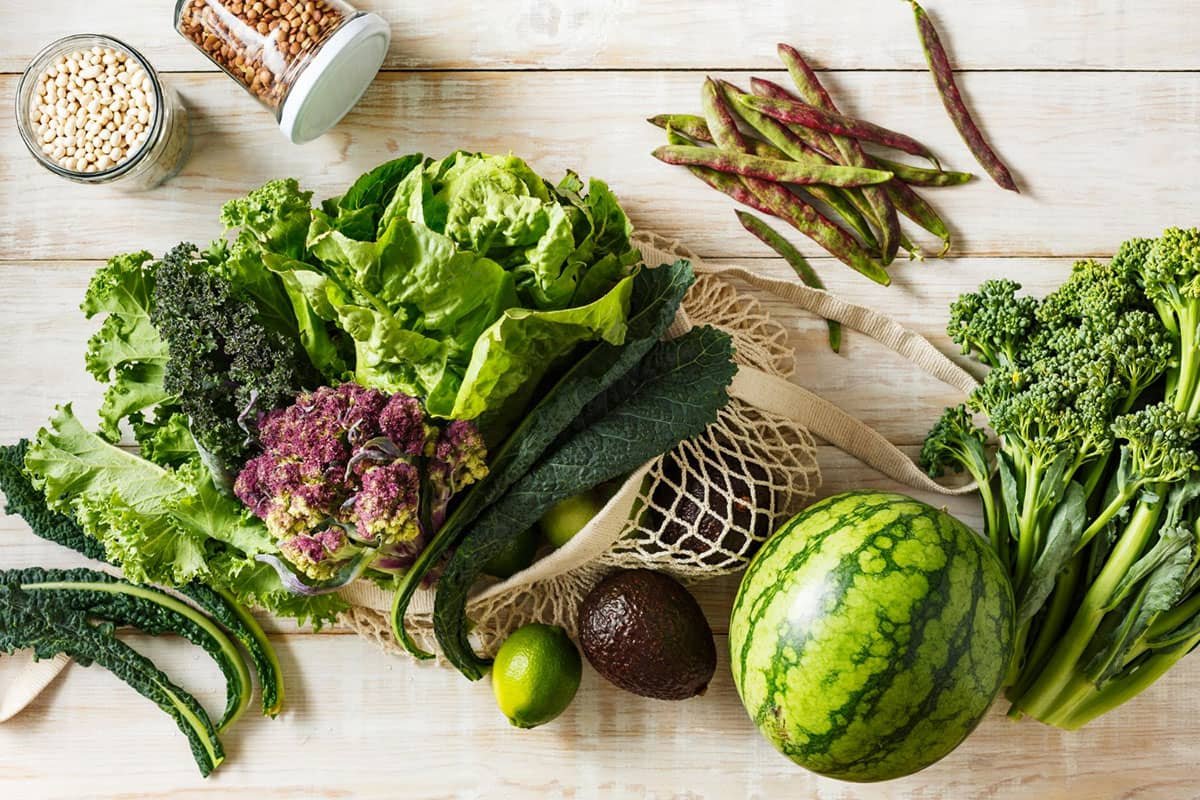In this article, we will explore some of the healthiest vegetables you can incorporate into your diet. From leafy greens to cruciferous veggies and beyond, each one offers unique benefits that can help boost your overall well-being. Whether you’re looking to improve your digestion, strengthen your immune system or simply maintain good health, these superfoods will make a great addition to your plate.
Vegetables are an essential part of a healthy and balanced diet, providing essential nutrients and vitamins to maintain good health. Eating a variety of vegetables every day can help boost your health, provide energy, and improve your overall wellbeing.
The definition of healthy vegetables can be quite broad. Generally speaking, these are vegetables that are low in calories and packed with nutrients, such as vitamins, minerals, antioxidants, and fiber. They can be eaten raw, cooked, or juiced, so there are lots of ways to incorporate them into your daily diet.
Eating vegetables on a regular basis has numerous benefits. They are rich in vitamins and minerals, provide a source of fiber, and are low in calories, making them a great addition to any meal. Eating vegetables also helps boost your immune system, supports healthy digestion, and can even help with weight management.
Including vegetables in your diet can also help reduce your risk of developing certain diseases. Studies have shown that eating a diet rich in vegetables can help reduce the risk of heart disease, type 2 diabetes, and certain types of cancers.
There are many different types of vegetables available, so it can be challenging to know which ones are the healthiest vegetables for you. To help make the decision easier, we’ve compiled a list of the top 10 healthiest vegetables that you should have in your diet.
In this article, we’ll discuss the benefits of including vegetables in your diet, the nutrient benefits of eating vegetables, and tips for eating more vegetables. We’ll also cover how to store and prepare vegetables properly.
So let’s get started!

Top 10 Healthiest Vegetables
When it comes to eating the healthiest vegetables, there are many options to choose from. Some of the best healthy vegetables include spinach, broccoli, kale, asparagus, cauliflower, sweet potatoes, Brussels sprouts, carrots, peas, and mushrooms. These healthiest vegetables offer unique nutrient benefits, making them superb additions to any healthy meal plan.
Spinach is an excellent source of vitamins A, C, and K, as well as folate, manganese, and magnesium. It is also high in antioxidants and fiber, which can help support heart health. Broccoli is rich in vitamins C, K, A, and B6, and is packed with fiber, iron, potassium, and folate.
Kale is an excellent source of vitamins A and K, and also contains calcium, magnesium, and fiber. Asparagus is a great source of vitamins A, C, and K, as well as folate, potassium, and fiber. Cauliflower contains various vitamins and minerals, including vitamin C, potassium, and magnesium.
Sweet potatoes are an excellent source of vitamins A and C, manganese, and fiber. Brussels sprouts are a good source of vitamins C and K, and also contain folate, dietary fiber, and manganese.
Carrots are a great source of vitamin A, potassium, fiber, and vitamin K. Peas are an excellent source of vitamins A, C, and K, as well as folate, fiber, and manganese.
Lastly, mushrooms are a great source of vitamin D, selenium, phosphorus, and copper.
These vegetables are packed with vitamins and minerals and rich in dietary fiber, which is essential for keeping your digestive system running smoothly. Furthermore, many of these vegetables are rich in antioxidants, which can help reduce oxidative stress and protect against disease.
Eating a variety of these vegetables can provide a wide range of health benefits, such as improving heart health, boosting the immune system, and promoting healthy skin.

Nutrient Benefits of Eating Vegetables
Regarding eating healthy, vegetables are undoubtedly some of the most nutrient-dense foods. Vegetables are packed with vitamins, minerals, fiber, and antioxidants, all of which are essential for maintaining good health.
Vitamins: Vegetables are packed with essential vitamins that are necessary for the body to function properly. Vitamins A, C, K, and B are all essential vitamins that can be found in vegetables and contribute to healthy skin, bones, and eyes. Dark leafy greens such as spinach and kale are excellent source of vitamins A and C, while broccoli and cauliflower are great sources of vitamin K.
Minerals: Just like vitamins, minerals are a vital part of maintaining health. Vegetables are an excellent source of essential minerals such as calcium, iron, magnesium, and potassium. Leafy greens are an excellent source of iron and calcium and can also be found in carrots, potatoes, and squash.
Potassium is found in many vegetables, such as potatoes, spinach, and Brussels sprouts. Magnesium is found in many dark leafy greens, such as kale, spinach, and Swiss chard.
Fiber: Fiber is an indigestible carbohydrate that helps promote gut health and digestion. Vegetables are an excellent source of fiber, with many leafy greens providing up to 2-3 grams of fiber per serving. Other great sources of fiber include artichokes, broccoli, and Brussels sprouts.
Antioxidants: Antioxidants are compounds that help protect the body from damage caused by free radicals. They are found in many vegetables, especially brightly colored vegetables such as carrots, peppers, and tomatoes. Leafy greens, such as spinach, kale, and Swiss chard, are also an excellent source of antioxidants.
Eating various vegetables can provide your body with the essential vitamins, minerals, fiber, and antioxidants it needs to stay healthy and function properly. Not only are they low in calories but also high in nutrients, making them the perfect addition to any diet.
Tips for Eating More Vegetables
If you’re looking for an easy way to increase your daily intake of vegetables, then you’ve come to the right place. Eating more vegetables is one of the best ways to improve your health and well-being. Here are some tips for incorporating more vegetables into your diet.
Include Vegetables in Every Meal:
One of the simplest ways to increase your vegetable intake is to include them in every meal throughout the day. Whether it’s adding a side of spinach to your breakfast omelet or tossing in some roasted veggies to your lunch salad, vegetables should be a part of every meal. This also helps to ensure that you get various nutrients throughout the day.
Get Creative with Recipes:
Another great way to incorporate more vegetables into your diet is to get creative with recipes. Instead of just steaming or roasting your vegetables, look for recipes that use unique ingredients or spices to boost them. This could also mean experimenting with new types of vegetables, such as using cauliflower instead of potatoes in a mashed recipe.
Try Adding Vegetables to Smoothies:
Smoothies can be an excellent way to get in some extra servings of vegetables without really noticing it. You can add some dark leafy greens, such as spinach or kale, or some frozen veggies like cauliflower or carrots. If you want to add some sweetness, frozen banana or pineapple will do the trick.
Replace Unhealthy Snacks with Vegetables:
Snacking is a great way to fill the gap between meals, but choosing healthy snacks that provide nutrients is important. Instead of reaching for chips or cookies, why not try some crunchy veggies such as carrots or celery? You can also jazz them up with some hummus or dip for a more satisfying snack.
Explore Different Types of Vegetables:
Finally, don’t be afraid to explore different types of vegetables. While you may be used to eating the same old broccoli and spinach, many other types of vegetables are just as delicious. From beets and bok choy to artichokes and watercress, there are so many types of vegetables that you can try.
Following these tips can easily incorporate more vegetables into your diet. Doing so will provide you with essential vitamins, minerals, fiber, and antioxidants, which will help to improve your overall health and well-being. So, why not give it a try?
How to Store and Prepare Vegetables
Storing vegetables correctly is essential for keeping them fresh and retaining their nutrients. The best way to store vegetables is by refrigerating them in a sealed container or bag. Different types of vegetables may need to be stored differently, so research the best storage practices for each type. For example, carrots should be stored in a bag with a damp paper towel to keep them crisp and fresh.
Another important factor when storing vegetables is keeping them away from fruits. Fruits emit a gas called ethylene, which can cause vegetables to spoil and lose their nutritional value quicker.
Preparing vegetables properly is also essential for ensuring they are cooked evenly and retain nutrients. Before cooking, make sure to wash the vegetables thoroughly to remove any dirt, bacteria, and other contaminants. Depending on the type of vegetable, you may also need to peel them, chop them, or cut them into smaller pieces. For example, potatoes should be peeled and then chopped into cubes before boiling.
Cooking time is important when it comes to preparing vegetables. It is important to not overcook them, as this will cause them to lose their flavor and nutrients. Some vegetables can be eaten raw, providing more nutritional benefits. If you are going to cook the vegetables, make sure to steam them to help keep their nutrients intact.
You can get creative with the flavors when adding vegetables to a recipe. Try adding spices and herbs to enhance the flavor and boost their nutritional value. You can also experiment with different cooking methods like grilling, baking, or sautéing.
Cut up your favorite veggies and put them into single-serve containers for a quick and easy snack. This way you can have a healthy snack without having to prepare each time. You can also try blending vegetables into smoothies for a nutritious and delicious drink.
Storing and preparing vegetables correctly can help you get the most out of them and ensure you get the most nutrition out of each meal. With a little research and experimentation, you can ensure you get the most out of every vegetable and maximize their health benefits.
Conclusion
It’s clear that vegetables are an important part of a healthy diet. Not only do they provide essential vitamins, minerals, fiber, and antioxidants, but they also help keep you full and satisfied. Eating the right types of vegetables can also help protect you from diseases and illnesses.
The key to adding more vegetables to your diet is to get creative. You don’t just have to stick to the same old salads and steamed veggies. Instead, get creative with recipes and try adding vegetables to smoothies, soups, and stir-fries. Also, try to replace unhealthy snacks with vegetables.
When it comes to storing and preparing vegetables, it’s important to follow the best storage practices. This means keeping vegetables away from light and humidity and storing them at the right temperature. Additionally, it’s essential to prepare vegetables properly. This means making sure they’re washed, cut, and cooked correctly.
In conclusion, eating vegetables is essential for a healthy diet. Not only do they provide essential vitamins, minerals, fiber, and antioxidants, but they also help keep you full and satisfied. Additionally, it’s important to get creative with recipes, store and prepare vegetables properly, and replace unhealthy snacks with vegetables.
Eating the right vegetables can also help protect you from diseases and illnesses. So, make sure to include the 10 healthiest vegetables in your diet to reap all the nutritional benefits.





